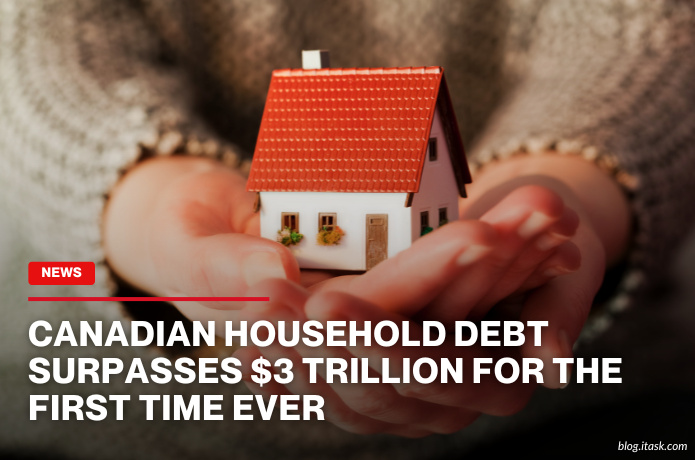Canadian Household Debt Surpasses $3 Trillion For The First Time Ever
Canadian Household Debt Surpasses $3 Trillion For The First Time Ever

Canadian household debt has reached an all-time high, exceeding $3 trillion for the first time, according to recent data. This total includes mortgage and non-mortgage debt, reflecting a 3.6% annual increase. Economists warn that this growing debt could have significant implications for the country’s economic stability as borrowing continues to outpace income and economic growth.
Mortgage debt remains the largest portion, representing over $2.2 trillion of the total. While rising interest rates have slowed mortgage growth slightly, they have not deterred Canadians from taking on more debt to fund home purchases. Meanwhile, consumer credit, including credit card and personal loans, has also surged, climbing 4% over the past year to $776 billion.
Economic experts attribute this trend to a mix of factors. Lower interest rates earlier in the year encouraged borrowing, but rising living costs and stagnant wages have pushed many households to rely on credit to make ends meet. Insolvencies have also risen, with September marking one of the worst months for financial distress in decades.
The Bank of Canada has implemented several interest rate hikes since 2022, aiming to curb inflation and cool borrowing. However, the effects of these policies may take time to materialize, as rate adjustments typically impact the economy over 18 to 24 months. This delay leaves many Canadians grappling with high debt loads as they face increasing economic uncertainty.
Financial institutions have expressed concerns about the sustainability of this debt growth, especially as economic output lags behind borrowing. Some experts predict this could lead to a “drag” on the economy, as higher interest payments consume a larger share of household incomes, reducing overall spending.
As policymakers monitor the situation, households are encouraged to prioritize debt management and explore financial relief programs if needed. The government and financial regulators are also evaluating measures to address the underlying issues contributing to this record-breaking debt accumulation.
